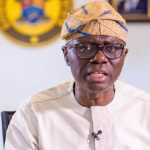...To get all news updates, Join our WhatsApp Group (Click Here)
Also Join our WhatsApp Channel (Click Here)
Abuja-based businesswoman, Aisha Achimugu, says she is unbothered by the things said about her over her lavish 50th birthday celebration in the Caribbean Island of Grenada.
Last week, Achimugu, who turned 50 on January 22, hosted a seven-day celebration in the small island country of Grenada.
The events saw guests alternate between Calivigny Island and Silversand, an exotic five-year-old seven-star luxury resort located at Grand Anse Beach which costs about $132,000 per night.
A serving governor alongside Nollywood veteran actor, Richard Mofe Damijo and her fellow socialite, Terry Waya, were among the guests who attended the events which kicked off on January 16.
Reacting to the fuss created by the party, Aisha said in a statement that she does not give a hoot.
“Good evening, everyone, lovers of mine. This is not an official thank you all for being there for me and coming to Grenada. It is a very tough time. It was a moment for me to thank everyone whom I should be concerned over with the pleasant media help about this famous Aisha.
“And I want to congratulate myself for being the most popular person in the entire world, apart from the Gaza and Israeli fight, I guess something that’s most popular on the news globally. I give God the glory, and I thank God for my life. And for those who have genuinely shown concern over the media, I want to assure you that I’m well, I’m in high spirits. I really don’t give a hoot. I’m doing me; I’ve always done me, a happy soul, doing what makes me happy.
“And again, celebrating people who love me, genuinely love me, who have always been there for me in the last 50 years and even less but feel like they’ve known me all my life. I thank you all. Thank you to everyone who has called me privately, those who have shown concern on the platform, and even those who have been quiet about it and praying in their own time. I want to say I’m extremely, extremely very grateful.
“But I want to assure you all that this girl is moving ahead. I’m having a great time, and I’ll continue to have a great time and have a ball today, tomorrow, and Sunday for those of you who are going to be around. And for those who are genuinely not concerned, I love you all.
“For those who are a player of what it is, I love you all. It’s just me, Aisha Achimugu, and I remain me, continue to shine, I continue to do me, and I’m not doing anyone else. And I’m all not political about it,” she said.
Speaking further, she added: “So, relate my message to those outside who are also calling you to show their concern and tell them that this young lady here is just starting and they will hear more of me.
“I’ve not been in a media space but since they’ve made it a duty for me to do that, I promise you’ll see more of my face in the media. So, in a lighter mode, just to let you know, I’m happy and looking forward to today.
“My most exciting moment is my charity ball, ten years of self, and then tomorrow to party and shut Nigeria down again. So, I will give them things to talk about. Thank you. Thank you for the entire week. God bless you, and I look forward to seeing you and celebrating with you again. Thank you very much. Bye,”
She hosted another birthday party at the Transcorp Hilton Hotel in Abuja on Friday, January 26 by 6 pm. There will also be a dinner party at the International Conference Centre today (January 27) from 8:30 pm.
Aisha, a widow who lost her husband, Suleiman Achimugu, to Coronavirus in 2020, is the founder and managing director of Abuja-based Felak Concept Group, a company that is into consultancy services related to health, equipment procurement, training and capacity building. She’s also a director at Altex Engineering Oil & Gas Limited and has also made her mark in maritime and transportation engineering. She is the first woman transaction advisor/consultant to develop a seaport (Ibaka Seaport) in Nigeria.
She chose to celebrate her birthday in Grenada after attaining Grenadian Citizenship by investment.
- THE WILL
You can get every of our news as soon as they drop on WhatsApp ...To get all news updates, Join our WhatsApp Group (Click Here)
Also Join our WhatsApp Channel (Click Here)

















